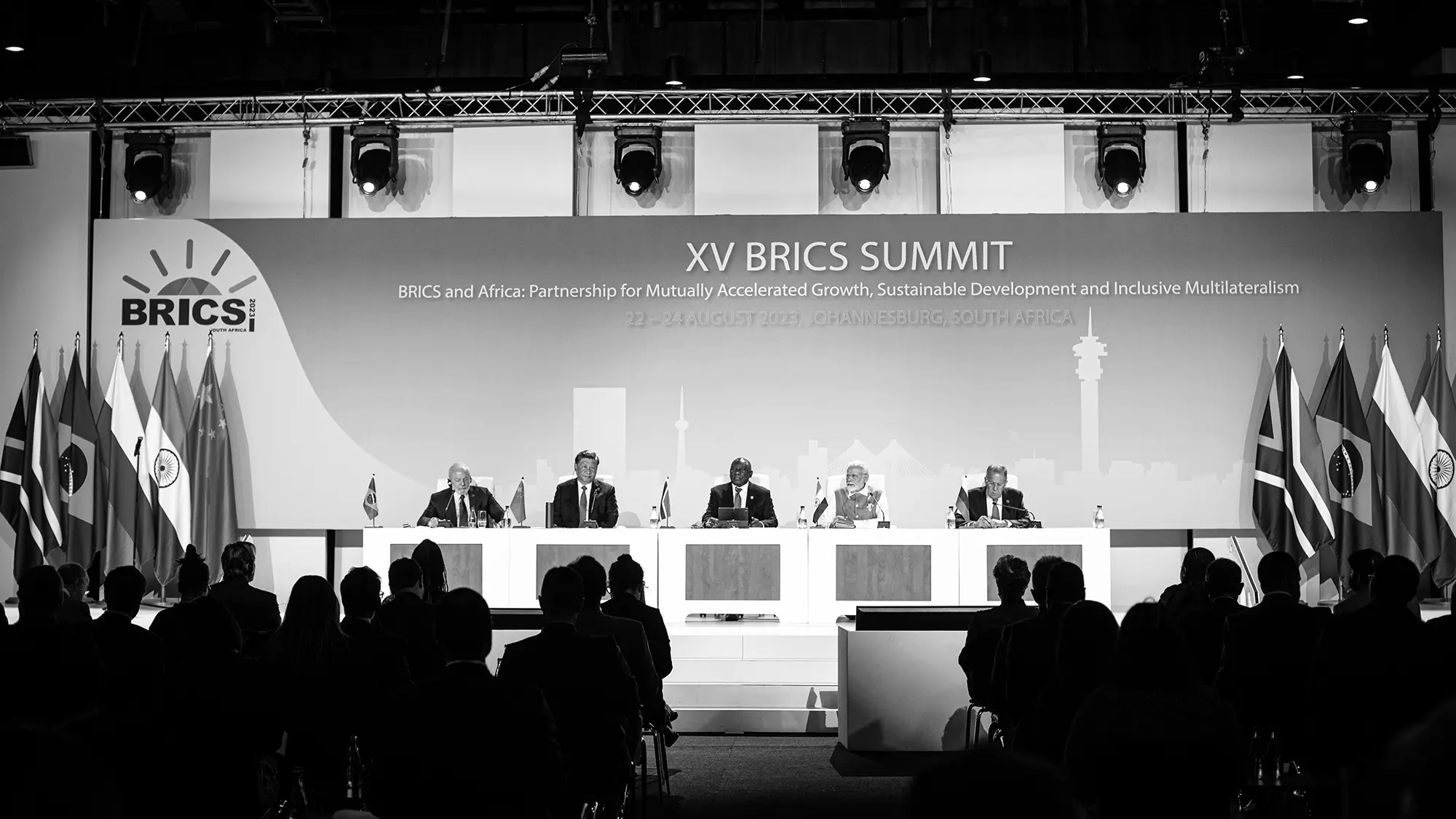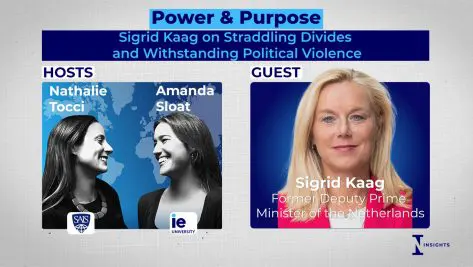Few traditions are more pan-Latin American than the Quinceañera or sweet 15 party celebrated throughout almost every country on the continent and by Latino communities abroad. Originating in the great pre-Columbian cultures yet also an instance of syncretism, the custom symbolizes the transition from childhood to adulthood, at a teen age.
The BRICS just celebrated their fifteenth birthday party a few days ago in Johannesburg. The media interest in their annual summit illustrates how the BRICS have grown in relevance since the first meeting in 2009 in Yekaterinburg. Is the group now on the threshold of maturity?
There is no shortage of analyses pointing to a shift in international geopolitics and the BRICS’ resolve to become a new apex of global governance. Besides the heads of the five members, barring a Vladimir Putin fearful of being detained as a result of the International Criminal Court’s arrest warrant on his head, the attendance of forty leaders in Johannesburg was striking, many of them eager to bring their countries into this exclusive club. The bloc’s strength is an undeniable fact, and it is clamoring for more and more clout in the international order.
Nevertheless, the summit hosted by President Ramaphosa raised questions about the path the BRICS will take in this transition from adolescence to adulthood, which in large part will shape the future success of this partnership. Here are four of them.
First of all, the issue of membership has certainly been at the core of the agenda and is the Summit’s main outcome. Six new countries – Argentina, Egypt, Ethiopia, Iran, Saudi Arabia, and the United Arab Emirates – have been invited to join as full members as of next year. Aside from the many interpretations this list may engender due to its eclecticism and because it features regional rivals (Iran, Saudi Arabia, the UAE) along with countries which are experiencing economic difficulties (Argentina) and even open conflicts (Ethiopia), the added value for a group of five countries which today account for 32% of the global economy in integrating six countries that only represent 3.2% of it seems questionable.
Having more seats at the table does not make it easier to reach unanimous decisions.
Geopolitical (China reaffirming its new role as global peacemaker), financial (the Gulf countries’ liquidity and muscle), energy (oil powers), and regional balance considerations have clearly taken precedence when deciding this list of new members. Yet, it is still surprising that a country like Indonesia is not included (apparently of its own choice). Similarly, doubling the number of members without institutional and governance tweaks may hinder the bloc’s capacity for future action, especially given the diversity and complexity of the new members’ political situations. It remains to be seen whether this expansion and those announced for the near future will actually strengthen this association, which will also have to find a new name to better reflect its DNA.
The second unknown is the bloc’s focus and priorities. With new members, it is likely that the agenda and issues to be addressed will expand as the number of sensitivities broadens. This may not necessarily be a bad thing, yet it may bring about a loss of focus as has already happened with actors such as the G20. Moreover, having more seats at the table does not make it easier to reach unanimous decisions.
The Johannesburg Summit has shown how difficult it is for the BRICS to move forward on specific issues aside from fine-sounding declarations. The quest for greater financial independence is a good example. While progress has been made on business transactions in their own currencies and alternative payment systems, plans to promote a common currency or replace the dollar as a payment mechanism in many bilateral exchanges between members are far from being fulfilled. Much of the future of the BRICS will be determined by their ability to deliver tangible results in specific topics.
Third, there is growing rivalry for internal dominance within the group. Whereas 15 years ago the balance of power was between a declining Russia and a surging China, it is becoming ever more apparent that today’s main counterweight to Beijing comes from Delhi. Johannesburg has established India as an increasingly self-assured challenger. The timing of the summit coinciding with the Indian moon landing was a further boost to Modi’s aspirations to position himself as a global leader, paving the way for his grand debut as host of the next G20 summit, in just a few days. The surreptitious diplomatic jockeying with Xi throughout the meeting, which failed to yield a much-anticipated bilateral encounter to address the Kashmir border dispute, speaks to India’s growing assertiveness. How this rivalry between the two countries which are set to be the driving force of the partnership is handled will largely dictate the future ability of the BRICS to operate as a unifed bloc.
Finally, and closely bound up with this struggle for ascendancy, there is the issue of how the BRICS see themselves and their place in the world. This is perhaps the key question for the group’s future. China, backed by Russia, is increasingly championing an anti-Western vision intended to cast the BRICS as a rival to the G7, a new geopolitical force running counter to the West. Yet India and Brazil do not construe this relationship in terms of opposition or conflict. Rather than a new Cold War approach, they simply draw attention to their ‘non-Western’ identity and stand up for their interests in a multipolar world without seeking an alignment of opposing blocs. Indeed, they strive to play a bridging role between the West and what is called the Global South, rather than taking one side or the other.
The BRICS have a number of challenges, not least their own diversity and the different and sometimes conflicting interests of their members. Nonetheless, the Johannesburg II Declaration reiterates their shared values and their commitment to promoting a more peaceful, representative, inclusive and enhanced multilateral system which fosters fairer, more sustainable development. Unfortunately, words are not always matched by deeds, and the next Summit in 2024 to be hosted by Russia does not seem to embody the best of these principles.
The world undoubtedly needs the BRICS’ active engagement to turn around today’s geopolitical context by putting cooperation ahead of competition. However, it is yet to be seen whether the numerous challenges facing this fifteen-year-old actor will allow it to make this final leap into maturity or whether there will be a spiral of hormonal adolescence which can bring little good to humanity as a whole.
© IE Insights.











